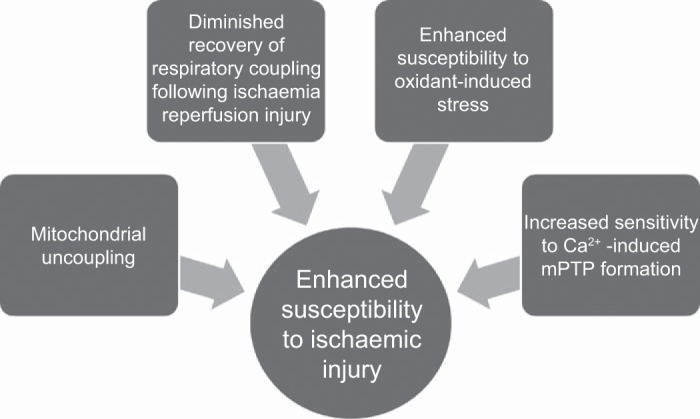Fig. 5.

Perturbations in mitochondrial function combine to predispose the uremic heart to ischemia-reperfusion injury (IRI). Persistent mitochondrial uncoupling may compromise energetic reserve capacity, rendering the uremic heart more vulnerable to metabolic stress. Diminished recovery of respiratory coupling following an IRI insult indicates greater susceptibility of uremic mitochondria to ischemic stress. Increased sensitivity to IRI-associated oxidant and calcium stressors enhances the propensity to mitochondrial permeability transition pore (mPTP) formation and subsequent catastrophic cellular injury.
